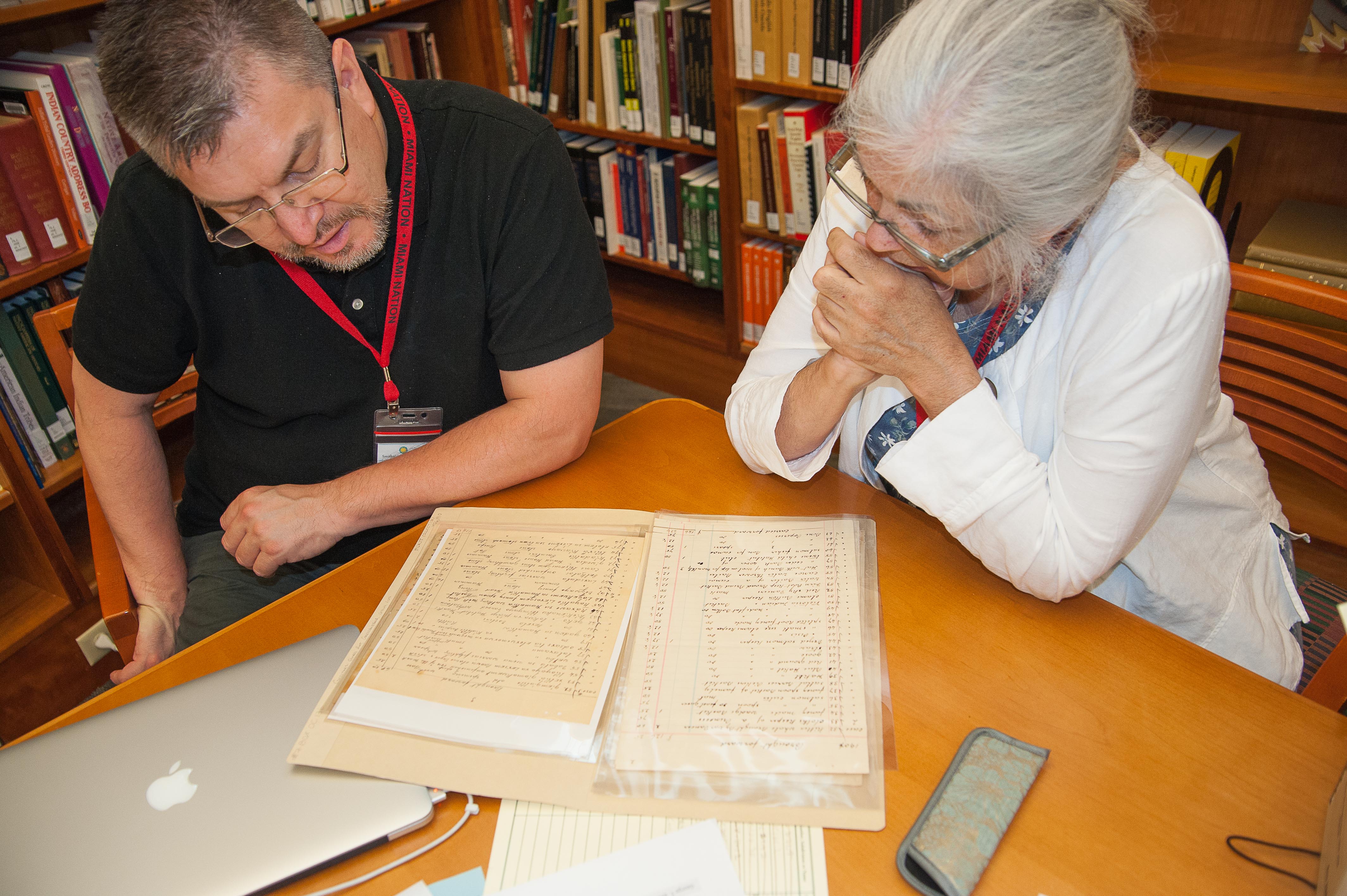Myaamia Center's National Breath of Life Archival Institute for Indigenous Languages receives NEH grant
The Myaamia Center’s National Breath of Life Archival Institute for Indigenous Languages was recently awarded a $349,442 National Endowment for the Humanities (NEH) grant.
Myaamia Center's National Breath of Life Archival Institute for Indigenous Languages receives NEH grant

Participants research language documents at the National Anthropological Archives (photos by Karen Baldwin pre-pandemic).
The Preservation and Access Education and Training grant will support the continued development of the National Breath of Life in the areas of training for community curated tribal archives for language revitalization and building an apprenticeship program for tribal community archivists who work directly with language archives.
National Breath of Life is housed within the Myaamia Center at Miami University’s Oxford campus and is dedicated to supporting partner communities in the training and development of community curated language archives for revitalization. It is co-directed by Daryl Baldwin, executive director of the Myaamia Center, and Gabriela Pérez Báez, associate professor of linguistics at the University of Oregon.
To date, the National Breath of Life has provided training to 117 community researchers from 55 language communities in the United States and Canada.
A major component of this new grant is the development of distance learning opportunities and new training videos motivated, in part, as a result of the recent COVID-19 pandemic.
Revitalizing languages
“National Breath of Life is committed to ongoing engagement and support for our partner communities,” Baldwin said. “COVID-19 has challenged current training models and our response is to innovate and recognize that our tribal communities need even greater support during this time.”
National Breath of Life recently completed its planning of a Native American Philology Model that will guide ongoing program development. Philology is the formal study of language and cultural information from archival materials and is an evolving field that supports archive-based research for language revitalization.
Of the 300 or more Native American languages in use at the time of the arrival of the Europeans, at least half ceased to be used at some time in their history.

National Breath of Life has provided training to 117 community researchers from 55 language communities in the United States and Canada.
For a community to revitalize one of these languages, archival documentation provides valuable information. National Breath of Life is designed to provide training to support the process of identifying archival materials of relevance, curating them as per community principles, managing the materials, interpreting their data, and utilizing them for language learning purposes. These are the essential steps necessary for archive-based research for revitalization.
Archive-based research for revitalization is a growing field nationally. More tribes are beginning to turn towards archival materials to support language and cultural learning opportunities in their communities. National Breath of Life is one of the very few resources to aid in the development of these archives for the primary purpose of revitalization.
In a recent global survey of 245 revitalization efforts around the world, almost one out of five efforts was for the revitalization of a language that ceased to be used at some point in its history. This points to a large and rapidly growing movement in which community members devote themselves to rigorous archival and linguistic research to curate knowledge about their languages that they can turn into learning opportunities.
Indigenous Language Digital Archive software
“Communities across the United States, and indeed around the world, are increasingly committed to the revitalization of their languages even after a period in which the language was dormant,” Pérez Báez said. “The implementation of the NEH grant will allow the National Breath of Life to make the training as accessible as possible across the United States and potentially other parts of the world.”
One of the key resources in this development is the Indigenous Language Digital Archive (ILDA) software suite that was developed by the Myaamia Center with the support of a previous NEH award and with graduate students from Miami’s College of Engineering and Computing.
ILDA is the only available software that allows for the organization, storage and retrieval of digital copies of linguistic archival materials. ILDA directly links independent data derived from linguistic analysis to the original manuscript pages. Its powerful search function allows for the in-depth linguistic analysis required for the reconstruction of a highly endangered or sleeping language.
For more information, including application information, visit nationalbreathoflife.org.
